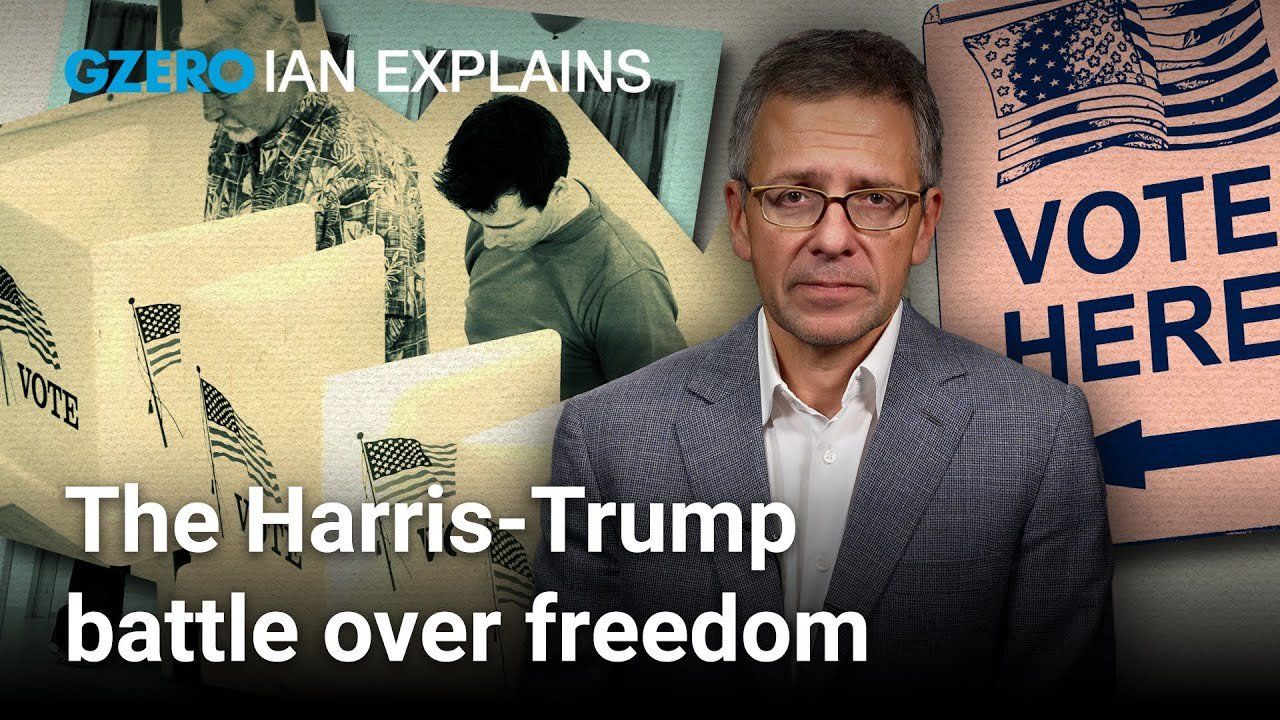October 12, 2024
Americans love their freedom. And depriving other Americans of said freedom (see: slavery, manifest destiny). But lately it's been the Democratic candidate for president, Vice President Kamala Harris, who has been focusing on freedom.
At a recent rally, she said this: "Across our nation, we have been witnessing a full-on assault on hard-won hard-fought freedoms and fundamental rights. The freedom to vote, the freedom to be safe from gun violence, the freedom to love who you love openly and with pride, and the freedom of a woman to make decisions about her own body and not have her government tell her what to do."
In the past, Democrats have talked about how the government could protect the freedom to love or the freedom to unionize. Flash forward to 2024, Reagan would be proud. What explains this rhetorical jujitsu? Well, it makes for a handy political foil. Trump could become that threat that Americans need protecting from.
There is, of course, one little problem with this messaging: reality. Because, in reality, Harris fundamentally believes that policy can make people's lives better. Sure, she received some criticism in her debate against Trump for being light on policy, and her campaign waited until well into September to publish an “Issues” page on her website. But make no mistake, Kamala Harris wants to use the levers of big government to build more housing, pass new child tax credits, and modernize education.
So, the question for Kamala—and Donald—is whether enough voters can live with those contradictions. We'll find out when millions of them exercise their most fundamental freedom at the ballot box on November 5th.
GZERO World with Ian Bremmer, the award-winning weekly global affairs series, airs nationwide on US public television stations (check local listings).
New digital episodes of GZERO World are released every Monday on YouTube. Don't miss an episode: subscribe to GZERO's YouTube channel and turn on notifications (🔔).
From Your Site Articles
- Harris, Trump and the hypocrisy in US politics ›
- Will Kamala Harris’ momentum last in the race against Trump? ›
- Trump vs. Harris: A high-stakes election and its risks to democracy ›
- How Harris and Trump plan to tackle America’s housing crisis ›
- Muted mics, amplified impact: Harris and Trump debate for razor-thin margins ›
- Ian Bremmer on Trump’s win - GZERO Media ›
More For You
- YouTube
In this Quick Take, Ian Bremmer reacts to President Trump’s State of the Union address, calling it “a rehashing of the greatest hits” with little new policy direction.
Most Popular
Sponsored posts
Small businesses at a crossroads
Walmart sponsored posts
Walmart’s $1 billion investment is strengthening associate careers
In terms of volume, Russia’s fossil fuel exports have declined a little since the full-scale invasion of Ukraine began in 2022. In terms of revenue, they’ve dropped significantly.
At the Munich Security Conference, a group of global technology providers, including Microsoft, announced the Trusted Tech Alliance — committed to shared, verifiable principles for trusted, transparent, and resilient technology across borders. At a moment of economic volatility and zero-sum technological competition, countries and customers are demanding greater accountability from technology providers. The Alliance addresses this by bringing together companies from across Africa, Asia, Europe, and North America around shared commitments: transparent governance, secure development practices, supply chain oversight, open digital ecosystem, and respect for the rule of law—ensuring the benefits of emerging technologies strengthen public trust while driving job creation and economic growth. Learn about the Trusted Tech Alliance here.
© 2025 GZERO Media. All Rights Reserved | A Eurasia Group media company.
